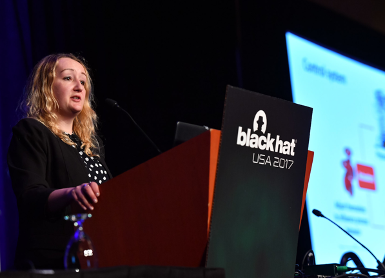I actually started writing yet another recommendation on how to submit a useful talk, but there are already several recommendations out there. Again, and again, each year probably like 70% of submissions are incomplete. This is a big issue because the workload for the reviewers is extremely high and when the submission is incomplete it makes us chase the submitters.
When we are starting the reviewing, we maybe have additional time to ask questions, but the closer we get, the less time and patience we have. We no longer have time to chase the authors with extra questions.
I have a super recommendation: First of all, yes the Black Hat submission form is lengthy, but there is a reason for all of those questions and sections. We evaluate based on all of them and all of them are critical to our understanding and evaluation of the submission.
To provide a reference, I spent one week writing my Black Hat submission for this year. One week and I am experienced, I already have five Black Hat submissions, I'm an experienced academic writer, I know how to write, but still, perfecting the submission takes time. I do several rounds, I improve, make it more clear, more convincing, I am trying to ease the work of the reviewer as much is possible.
Sometimes, when you look at the submission, you can see that they spent like 30 minutes or maximum an hour on it and they just didn't even have patience to fill in all the fields. So, this is the point: exceptionally good submissions, good research, clearly written, they most likely will be accepted exceptionally bad submissions, will be clearly rejected.
When the Review Board has let's say 600 talks of approximately the same score, how do we select those which are worse? This is where the quality of your submission will literally allow you to be selected. We remember clear talks, we remember talks which we understood very well, or maybe which were witty a little bit, exciting, because in the end we look also at the quality of the language in the submission. It tells us whether the author will be able to deliver a good talk.
For example, if you look at two submissions, the same quality, good research, but one is clearly, much better written, better language, more convincing of clear expression, then probably that submission will make it through, so therefore perfecting and cleaning the submission is really worth the effort, because it really significantly increases the chance of being selected and standing out from all of those talks with approximately the same score.



